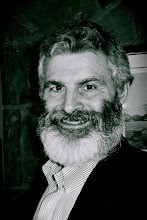The
defense of property rights is at the core of all things libertarian.
Most
people would agree that they own their own body, mind and soul – these can be
considered their Personal Property. Most would also agree that they own their
own productive capacity - the ability to work and create new things from there
personal efforts- this would also fall under the category of Personal Property.
Furthermore, if someone freely exchanges his or her productive capacity for
money, this becomes Personal Property too. Finally, if this money was used to
buy a stake in a business in the form of bond or equity purchases, this stake
becomes a Personal Property asset.
At
the enterprise level, most people would agree that all stakeholders of a
business enterprise collectively own the enterprise and its assets in the
proportion defined by each stakeholder’s ‘stake’. These assets would include: retained
earnings; capital investments such as buildings, equipment, etc; the goods and
services produced for which they are paid by willing customers; the company
brand or ‘reputation’ earned through investments in sales, marketing, product
quality and customer service; the organizational structure and individual jobs
that have been shaped to meet business promotion and production goals; and the
employment contracts that have been negotiated with employees to fulfill the
requirements of these jobs.
Now
that we have described “property” ownership at the “individual: and private
“enterprise level”, how do we apply this analysis to the question… “Who owns
the government and its assets?”
The
government, and its assets, is clearly
not owned by individuals in the same way that they own their body, mind, soul
or acquired material assets. It is not owned by shareholders in the same way
that people purchase the equities or bonds of a Corporation.
Another
member of the Ontario Libertarian Party stated to me recently that tax
receipts, when collected by government, immediately become assets of the state
for which the individual taxpayer can no longer make claim for their personal
needs. However, the question still remains "Who owns these assets or any
government property? "
The
answer to this question will likely be framed in legal terms - something along
the lines that " the government was created by the collective will of the
people to formulate a legal entity which can be used to divert a portion of the
productive output of all citizens to purposes that will serve the 'greater
good’ of the nation…"; or something to this effect. However, the question
will still remain "Who owns this legal entity?"
So, why
is this question important? After all, each Canadian has the ability to provide
direction to this legal entity with their vote. Presumably, their vote is sufficient
to influence the government to deploy these assets in their preferred manner. Hence,
our "democracy" seems to be working for Canadians, does it not?
Allow
me to use a simple parody to portray our democracy in action.
Consider
for a moment a hypothetical Canadian family with 5 members. Let’s call them the
Rich family.
Mr.
Rich is the breadwinner and earns $250,000 a year. Mrs. Rich, who stays home to
care for their 3 children, has control of
the family budget. Mrs. Rich, however, has a problem – to “keep up appearances”
in her community, she has been secretly using readily-available and cheap credit
to spend well beyond the family budget.
Some
time ago, Earnest Rich, the eldest son, learned his mother's secret and promised
not to tell father in exchange for “perks”. Mrs. Rich reluctantly complied. Under her mismanagement, the family’s real
financial assets have evaporated, the family debt continues to pile up as she endures
a painfully guiltily conscience over shortchanging her other 2 children and
jeopardizing family security.
Mr.
Rich has a secret of his own. Using the personal savings of people who he has
convinced to trust him, he operates an exclusive investment business which features “unbelievable” investment
returns for ‘a privileged group of select investors’. For many of these people, the investments made
with Mr. Rich represent a significant share of their total financial assets.
Unknown to any of them, however, Mr. Rich’s business is a Ponzi scheme - a ticking time bomb that will detonate some
day and wipe out much of the life savings of everyone including his own family.
There
are many similarities to Ontario politics and government in this hypothetical
scenario.
Like
politicians, Mr. Rich promises a better life to his constituents using other
peoples’ money while boosting his public image and enriching himself in the
process. Mrs. Rich, who claims to love her children equally, has succumbed to
“special interest ” pressures in the form of a serious personal threat by a
selfish, entitled family member. To keep up appearances as well as to continue
to “buy” the support of her “partner in crime”, she digs a deeper financial
hole which will surely become a real financial burden for the entire family.
Meanwhile, Mr. Rich projects himself as a trustworthy and successful member of
the community who makes promises he cannot possibly keep.
And,
of course, it is all a sham.
In
the real world, the price to be paid by the Rich family for its sins are
lessons already learned by others. Bernie Madoff, for example, has learned that,
while telling big lies can have big pay-offs, the downside is equally big.
Ultimately, illegal ponzi schemes can't go on forever and the ultimate price to
pay is personal freedom.
Greek
citizens are learning another painful lesson - that there really is no “free
lunch” and that they cannot live beyond their means forever.
In a
nutshell, this story espouses a simple truth: only actual Property owners will act in their own best interests to
manage and invest their assets responsibly. This too is a core tenant of
Libertarianism.
So I
ask you one more time....who owns the government and its assets?

No comments:
Post a Comment